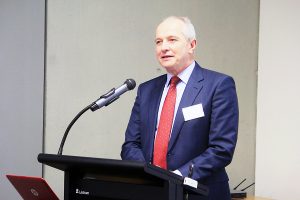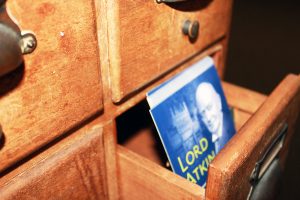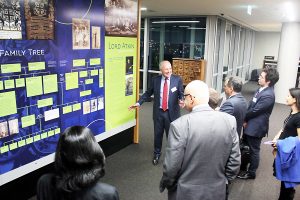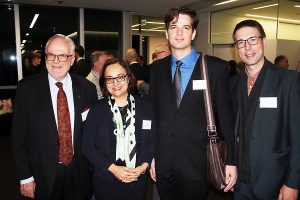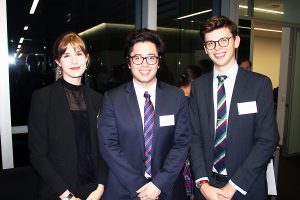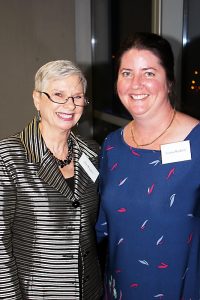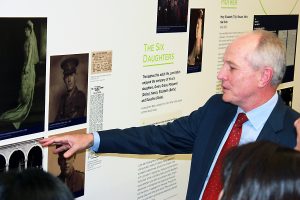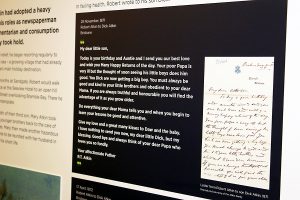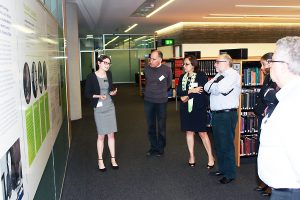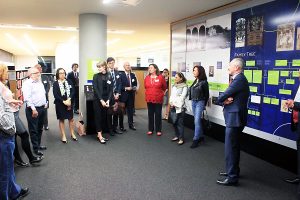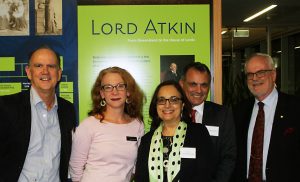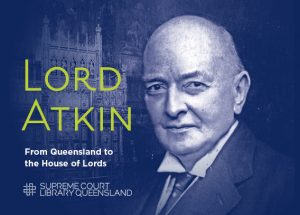 HAL hosted a lecture by the Honourable Justice Peter Applegarth, and tour, of the Lord Atkin Exhibition at the Supreme Court Library, Queen Elizabeth II Courts of Law, on 11 May 2018.
HAL hosted a lecture by the Honourable Justice Peter Applegarth, and tour, of the Lord Atkin Exhibition at the Supreme Court Library, Queen Elizabeth II Courts of Law, on 11 May 2018.
His Honour’s lecture was one of a number of events to commemorate the 150th anniversary of Lord Atkin’s birth in Brisbane and his lasting legacy to the common law.
The lecture reflects HAL’s focus on one of its major objectives to provide continuing legal education and the exchange of legal information.
His Honour guided more than 40 guests through a series of fascinating displays exploring Lord Atkin’s:
- uncompromising support for social justice
- his enduring influence on the rule of law
- his connection to family
- the social and political landscape of the Queensland into which he was born.
James Richard Atkin was born in Tank Street, Brisbane on 28 November 1867. Atkin’s parents had emigrated from England to the newly established colony of Queensland in 1864.
After a period on the land, Atkin’s father established himself in Brisbane as a journalist. He also became a member of the Legislative Assembly. Unfortunately, his failing health – ultimately resulting in his death in 1872 – led to the rest of the family returning to a family home in Wales.
Atkin read for a degree in classics at Magdalen College, Oxford, and then was called to the Bar by Gray’s Inn (1891). Atkin soon became a leading member of the commercial Bar, taking silk in 1906. Judicial elevation swiftly followed. Atkin was appointed a judge of the Kings’ Bench Division (1913), Lord Justice of Appeal (1919) and then Lord of Appeal in Ordinary (1928).
During his judicial career Atkin was not only respected as a technically proficient lawyer but admired for his insight and judgment. It was this combination of qualities that produced a number of judgments of lasting importance and global influence.
These judgments included Donoghue v Stevenson (1932), where Lord Atkin’s speech famously articulated the ‘neighbour principle’ upon which the modern tort of negligence has been founded. They also include his famous dissent in Liversidge v Anderson (1942), where he sought to strike down a wartime internment decision that had been given without reasons. Drawing upon the principles underlying the rule of law, Lord Atkin rejected the view that the reasonableness of this decision was immune from scrutiny.
Justice Applegarth’s entertaining prelude to the library tour also alluded to the many challenges facing emigrants to Australia, from many different lands, and the challenge of establishing themselves.
Another of Lord Atkin’s links to Greece is that one of his grand-daughters settled in the country.
Lord Atkin died in 1944 at the age of 76.
The free exhibition, which examines Atkin’s life, career and impact, is in the Supreme Court Library on Level 12 of the Queen Elizabeth II Courts of Law and will be open until November 2018.

